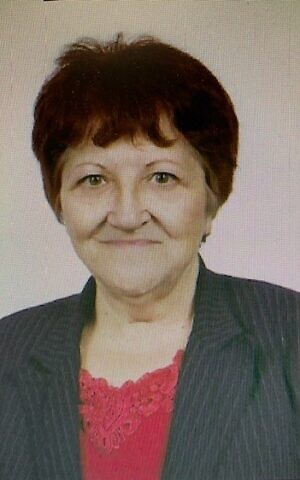Need at Women’s Shelter Spiked With COVID
While often kept quiet, domestic abuse occurs in Jewish community, too.
There is no vaccine against domestic abuse. Likewise, being Jewish doesn’t immunize someone against domestic violence. And in the past pandemic year, domestic abuse – mostly of women – has jumped more than 40 percent, according to Anna Blau, executive director of International Women’s House Inc., a DeKalb County-based shelter for abused families.
“Nothing I’ve experienced during my tenure has prepared me for the 42 percent increase in domestic violence crisis calls – as well as 4,130 calls to our 24-hour hotline – since March 1, 2020,” said Blau, who has led the International Women’s House for 24 years. Statewide, Gov. Brian Kemp has reported a 92 percent increase in domestic abuse calls.
The pandemic has exacerbated what is already a problematic issue in the country, Blau said. “People don’t become abusers overnight.” But the pandemic added stresses to everyone’s lives, particularly if jobs were lost, she said.
“People were terrified of running out of toilet paper, meat, masks, gloves and milk, especially if there were a number of children in the house. Children need to feel safe and none of us felt safe.”

On top of that, adults worked from home, children learned virtually. Victims of abuse felt they could not get away from their abusers, even to make calls to crisis hotlines.
International Women’s House, a 21-bed facility that serves women and children from all cultures, has 12 employees, five of whom are Jewish. “A majority of the staff are survivors of abuse,” including Blau herself. Four members of the staff, also including Blau, have been infected by the COVID-19 virus in the past year.
Since Blau was persuaded to take the executive director position, the shelter has helped more than 100 Jewish victims of domestic violence. “Abuse cuts across all Jewish cultures,” she told the AJT. Fleeing an abuser, however, is more difficult in the Orthodox world, she acknowledged.
“There’s an expression that you don’t speak [ill] outside the house. There’s an aversion to attracting attention in the culture. We are told, don’t say anything that will shed a bad light on the community. Silence is golden,” she explained.
About two years ago, an Atlanta Orthodox woman fled her abusive husband with several children. “Her biggest fear was being shunned by the community. But she was beaten regularly and sexually abused,” Blau said of a former resident. Oftentimes, there’s also economic abuse if the women are financially dependent on their husbands. This resident was allowed to go to the grocery store, but she had to bring her receipts to show her husband. One time she bought herself stockings, which upset her husband. “It can be any little thing” that sets off the abuser.
Blau’s shelter, which has assisted more than 12,000 victims in the past couple of decades, tries to be culturally sensitive to its residents. In the case of the Orthodox woman, a refrigerator and separate dishes were provided in her room. “We buy hallal meat for Muslims. One woman recently requested a prayer rug. We try to accommodate everyone,” Blau added. She noted that currently residents are from Nigeria, Egypt, Mexico, India and Iran. “Any given year, we have women from as many as 45 different countries,” she said. The staff speaks 11 languages, including Hebrew.
Prior to joining the International Women’s House, Blau served as executive director of Jewish Vocational Service for 21 years, where she started its homeless program. During her time there, she placed more than 10,000 Jews in jobs, many of them refugees from Russia.
Blau, who moved to Atlanta when she was 13 years old in the early 1960s, was once a refugee herself. The daughter of Holocaust survivors, Blau was born in a displaced persons camp in Germany. “I grew up feeling different,” she recalled.
“We see kids who come here who don’t speak English. I remember going to school when I was 5 years old and I didn’t know English. They called me ‘stupid.’ I didn’t know the word. I looked it up in the German dictionary, and I knew I wasn’t stupid. I decided that I would be the smartest child in the class, and I was,” she said. In fact, she was the school’s spelling champion when she was 12 years old.
“I thought I was retiring when I left the Jewish Vocational Service. I didn’t want to be an executive director anymore, but they [the shelter] begged me to come in for an interview and I didn’t turn the job offer down. Working with abused women touched me. I thought it would be for three months, but then it kept getting extended.”
The shelter had been closed at the time. Blau is proud of the fact that she has kept it open during the past year, despite major funding cuts at the county, state and federal levels. Only one staff position was eliminated at the shelter. But Blau is struggling with a budget shortfall of $24,000 which she needs to cover in the next six months.
Fundraising has been difficult during the pandemic. But a “well-known” Jewish donor who wanted to remain anonymous provided an emergency grant. Mostly the shelter has received “small grants here and there,” she said.
Blau received the Eagle Award in 2010 from the Georgia Criminal Justice Coordinating Council, the highest state award given for service to victims. She hopes the shelter can hold a fundraiser by the end of the year. Because, as she notes, domestic abuse will outlive the pandemic.
For further information about the International Women’s House, call 770-413-5557 or visit https://internationalwomenshouse.org.




comments